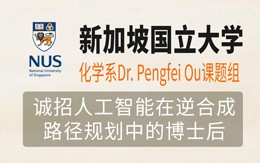From November 2019 to date, almost six thousand papers have been published on COVID‐19, the disease caused by SARS‐CoV‐2 infection. As physicians working in a multidisciplinary center for the cure of hereditary haemorrhagic telangiectasia (HHT) in a country (Italy) that has been severely affected by COVID‐19, we are surprised that, among this impressive amount of publications, there is none on HHT. Indeed, we performed our last PubMed search on 22 April 2020, using the keywords “hereditary haemorrhagic telangiectasia” OR “hereditary hemorrhagic telangiectasia” OR “HHT” OR “Rendu‐Osler‐Weber” AND “COVID‐19” OR “coronavirus,” and found no papers. This is surprising, because, although HHT is a rare disease, there are many reasons why we believe that it deserves special attention during the COVID‐19 pandemic. One reason is that almost 95% of subjects with HHT have spontaneous and sudden epistaxis, which sometimes may simply require self‐treatment and home remedies, but may also lead to procedural interventions in medical offices, emergency departments, hospitals, and operating rooms.1 The manipulation of nostrils, nasal cavity, or nasopharynx, either done at home by family members or caregivers or performed in a hospital setting by medical personnel, may expose patients to increased risk of contracting the infection. Another reason is that subjects with HHT often suffer from medical conditions that may negatively influence the clinical course of COVID‐19. These include chronic anemia, heart failure, pulmonary arteriovenous malformations (AVMs), and pulmonary hypertension.1 All these diseases may be associated with chronic hypoxemia, which might further worsen in case of COVID‐19 pneumonia. Particular attention should then be paid to the fact that subjects affected by COVID‐19 seem to be at increased risk of thrombosis.2 This is a delicate issue for HHT patients, because it has been demonstrated that, despite the presence of an overwhelming bleeding propensity, they may also suffer from thrombotic complications. Indeed, they may develop paradoxical thromboembolic stroke from pulmonary AVMs and also possess an inherent prothrombotic state related to disturbances in the regulation of coagulation at the endothelial surface, with levels of coagulation factor VIII (FVIII) being higher in HHT subjects than the general population and the degree of FVIII elevation correlating with thrombotic risk.3 It should also be considered that some HHT patients are receiving treatment with medications that are either associated with an increased risk for thrombosis or interfere with the natural clot disintegration, such as thalidomide, pomalidomide, tamoxifen, pazopanib, bevacizumab, aminocaproic acid, and tranexamic acid.4 These people might therefore be at even higher risk of coagulopathy in case of SARS‐CoV‐2 infection. The other side of the coin is that antithrombotic therapy cannot be used lightly in HHT, because this disease primarily is a hemorrhagic disorder, characterized by the presence not only of epistaxis, but also of vascular malformations in the brain and gastrointestinal telangiectasia.1 We have recently shown that antithrombotic therapy may be well tolerated by subjects with HHT, but this certainly requires a careful evaluation by experienced physicians.5 Indeed, there are other studies that report significant worsening of epistaxis and increased gastrointestinal bleeding in HHT subjects treated with anticoagulants.6, 7 We are not fully satisfied with the suggestions that medical societies are giving on this issue. For instance, in the International Society on Thrombosis and Haemostasis interim guidance on recognition and management of coagulopathy in COVID‐19, that has been recently published in the Journal of Thrombosis and Haemostasis , the only contraindications that are mentioned, regarding the use of heparin in hospitalized COVID‐19 patients, are active bleeding and reduced platelet count (less than 25 × 109/L).8 Additionally, many physicians around the world have the feeling that standard pharmacological thromboprophylaxis is not enough and advocate the use of higher, and even therapeutic, doses of heparin to prevent thrombotic complications in hospitalized COVID‐19 patients.9 The risk‐benefit ratio of such a therapeutic approach in HHT patients is completely unknown. Last but not least is the psychological impact that the COVID‐19 pandemic may have on subjects affected by HHT. A high prevalence of depressive and post‐traumatic stress disorder symptoms has been reported in HHT10 and we know, based on our personal experience, that subjects with HHT require particular care also at the psychological level. Isolation, social distancing, hospital restrictions, and closure of many HHT outpatient clinics may have severe deleterious effects on the mood of these patients. We call for a sustained effort by the medical and scientific HHT community to reduce the burden of COVID‐19 on our patients.


































 京公网安备 11010802027423号
京公网安备 11010802027423号